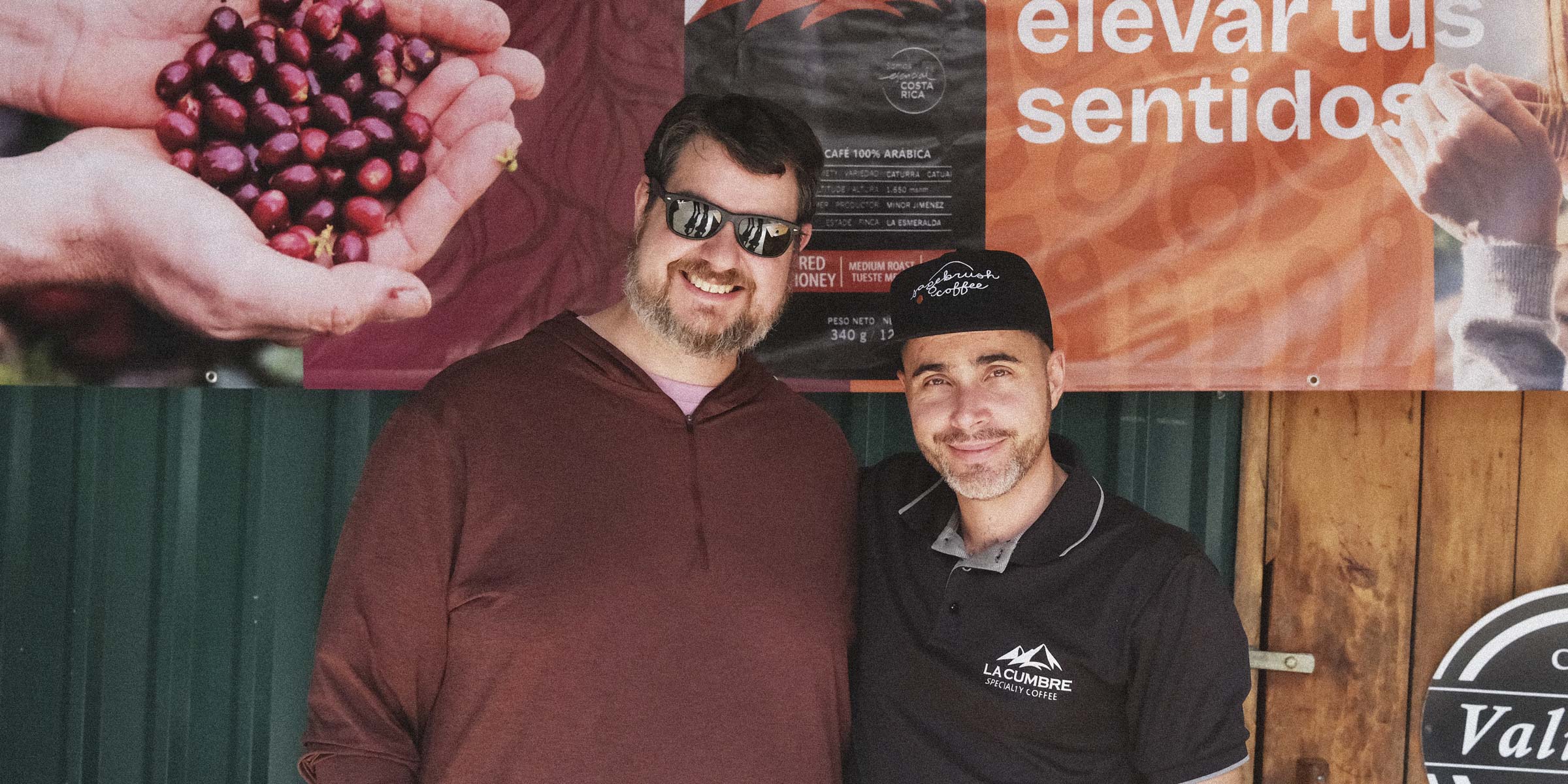Producer Profiles Main Page •
Back to Producers OverviewMeet Minor Jimenez: Coffee Producer in Tarrazú, Costa Rica
When we think about the producers we work with, Minor Jimenez stands out not just for his technical expertise but for how naturally his story mirrors our own journey in coffee. Meeting him and his family at La Cumbre felt less like a business visit and more like catching up with old friends who happen to share the same dreams.
Family Roots
Minor Jimenez Abarca represents the fourth generation of coffee producers in his family. Together with his wife Nancy Gaitan Cruz, they manage La Cumbre in the mountains of San Marcos, Tarrazú, where coffee has been cultivated on their land for 90 years. The farm sits at 1650 meters above sea level, spread across 100 hectares of volcanic soil that has nurtured their Caturra, Catuaí, and Centroamericano varieties through nearly a century of harvests.
What makes Minor unique among his generation of producers is his formal training as an agronomist engineer. This scientific background gives him deep understanding of how climate, soil, and altitude interact with coffee plants. He applies this knowledge daily, making careful adjustments to optimize growing conditions while respecting the traditional practices passed down through his family.
The Jimenez family employs around 300 people during harvest season, but their approach to labor goes far beyond seasonal employment. They maintain year-round staff and welcome back the same migrant worker families each harvest, creating stability and community that's increasingly rare in agricultural work.
Their Work
For generations, Minor's family delivered their cherries to local cooperatives and large neighboring wet mills, accepting whatever prices the market offered. But Minor saw an opportunity to take control of their coffee's destiny. He and Nancy founded their own wet mill at La Cumbre, allowing them to process their coffee themselves and identify the best lots from their harvests.
This shift to processing their own coffee wasn't just about economics, it was about quality. Minor ensures harvesters are well accommodated and thoroughly understand field operations. The result shows in the careful selection of coffee that arrives at their wet mill. They process using multiple methods, from traditional washed coffees where all mucilage is removed, to red honey processes that retain 60% of the natural sugars, to reposado techniques where cherries rest for 36 to 40 hours before processing.
Beyond processing, the family operates their own roastery, producing coffee for the Costa Rican market. This vertical integration gives them rare insight into every step from seed to cup, understanding how decisions in the field affect what ends up in someone's morning ritual.
Our Time Together
Visiting La Cumbre in 2025 gave us a window into their world that went far beyond coffee processing. Minor and Nancy welcomed us into their home, where Nancy prepared lunch in their beautiful kitchen while their sweet daughters played nearby. We toured the mill, walked portions of the farm, and saw their roasting facility where they prepare coffee for customers throughout Costa Rica.
What struck us most was seeing the parallels between Minor's journey and our own. Like us, they're a family operation that decided to take more control over their product's quality and story. Like us, they balance respect for tradition with willingness to innovate. Like us, they see coffee as more than commodity, it's connection, craft, and community all at once.
Their Impact
The working conditions La Cumbre has created for its employees over the years reflect values that go beyond profit margins. By maintaining consistent employment for core staff and welcoming back the same seasonal workers year after year, they've built relationships that span generations. Workers know they're valued, which shows in the meticulous care taken during harvest.
Minor's technical expertise as an agronomist means the farm operates with environmental consciousness built into every decision. Different shade tree varieties increase biodiversity on the farm, creating habitat for wildlife while protecting coffee plants. The combination of scientific knowledge and generational wisdom results in farming that sustains both land and livelihood.
Through their roasting business, they're also helping Costa Ricans connect more directly with their country's coffee heritage, shortening the distance between farms like theirs and the cups in San José cafés.
What Makes Them Special
Working with Minor and Nancy feels less like a supply chain relationship and more like extended family sharing in each other's success. They understand the challenges of running a small coffee business because they face them too. They know the tension between honoring tradition and embracing change because they navigate it daily.
Minor brings together threads that rarely combine in one producer: multi-generational farming knowledge, formal agricultural education, hands-on processing expertise, and direct market experience through their roasting operation. But beyond all the technical excellence, what makes La Cumbre special is the warmth of the family behind it, people who made us lunch in their home, introduced us to their daughters, and shared their story with the same openness we try to bring to ours.
When you drink coffee from La Cumbre, you're tasting the result of 90 years of family dedication, refined by modern expertise and processed with uncommon care. More than that, you're participating in a relationship that spans continents but feels as close as neighbors sharing over a fence.



